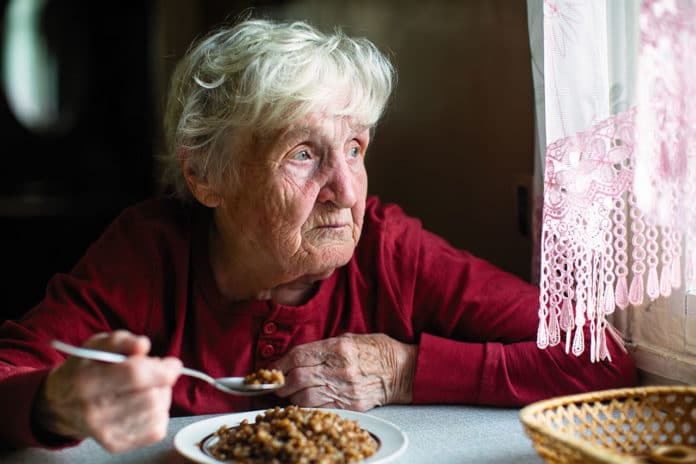Eating disorders are psychological situations defined by extreme and continuous disturbances in eating, which is associated with stressful thoughts and emotions. They can affect physical, psychological, and social conditions. There are various types of eating disorders, including anorexia nervosa, bulimia nervosa, binge eating disorder, avoidant restrictive food intake disorder, pica, and rumination disorder. Our body functions change as we become older. The eating disorder causes a decrease in physiological activities, which is most commonly seen in people of old age. In old age, a lower metabolic rate and less physical activity ultimately affect nutritional status, causing malnutrition. This can cause severe effects on the older population, such as sarcopenia, a high risk for frailty, and increased morbidity and mortality.
Recent Study
Eating problems are mostly observed in the old age population, suggests a new study conducted at the University of Eastern Finland. Scientists observed that almost 30% of 250 older care patients reported eating difficulties due to teeth or dentures.
This study considered three factors: Nutrition, Oral Health, and Medication. The sample consisted of 75-year-old and older home care clients living in three cities in Eastern and Central Finland, including a total sample of home care clients in one community and a randomized sample of home care clients in two other communities. The home care nurses interviewed the participants in their homes about their willingness to participate.
The study evaluated commonness and factors responsible for eating disturbances by a clinical nutritionist and dental hygienist. The study divides eating problems into loss of appetite, chewing, swallowing, and health-related eating problems. They found that most participants experienced poor nutritional conditions and decreased food intake in the past three months. Additionally, they discovered that people with poor oral health were more likely to experience difficulties chewing and swallowing. Conversely, edentulousness raised the risk of chewing and oral health issues. The usage of several medicines regularly was linked to eating issues related to dental health and lack of appetite. Participants with edentulous teeth, toothaches, or issues with their dentures were more likely to report eating issues when speaking with a dental hygienist. The risk of having eating issues rose when one felt their mouth was dry.
Data Analysis
The data were analyzed at IBM Corporation, Armonk, New York, USA by using statistical package for social Sciences 27.0 software, where statistical comparison was made between categorical variables and continuous variables by using X2 test and Mann-Whitney U or independent sample t test as p < .05 considered significant and result obtained where frequencies in percentages and means with standard deviations. To adjust the association between participants with oral health-related and self-reported problems in eating, a binary logistic model was used for considering age, gender, MMSE score, FCI score, 15-item GDS-15 score, MNA score, and a number of drugs that are in regular usage.
Result
The mean age was considered 84.5 years, where 74.0% of females and 64.8% of participants were alone. It was evaluated that 43.0% of edentulous participants, from which 6.0% did not have dentures and 27.6% of participants had a combination of own natural teeth and dental prosthesis, and 29.2% of participants had own natural teeth without any dentures where comorbidities and depressive score were common having mean FCI score 2.9, SD 1.9 and GDS-15 score was 4.8 and Sd scores 3.1. By considering clinical nutritionists, it was observed that 20.4% were facing problems with chewing and 13.6% with swallowing. And as the dental hygienist stated, it was observed that 18.4% of participants were experiencing oral health-related problems.
Dentist Annina Salmi, the first author of the article, said, “It is important for older people to maintain good oral health because it affects eating.”
“In this study, loss of appetite was the most common finding, suggesting that eating problems are multifaceted. Another thing we observed was that clients talk about their eating-related problems differently with different health care professionals, which is why eating problems should be screened continuously and in different ways, in interprofessional collaboration.”
Journal Reference
- Annina Salmi, Kaija Komulainen, Annamari Nihtilä, Miia Tiihonen, Irma Nykänen, Sirpa Hartikainen, Anna L. Suominen; Eating problems among old home care clients. Clinical and Experimental Dental Research, 1– 10. DOI: 10.1002/cre2.585
